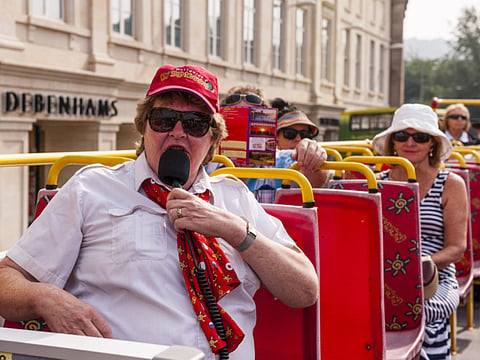The changing definition of history
True, all of this happened before those young guides were born, but for us, the events he or she is talking about happened in our lifetime

Young people always make us think.
Some of us fuddy-duddies may disapprove of their “new” ways — and be very vocal about it.
Some of us, however, have not forgotten the fumbling and bumbling around that we did in just about everything when we were young. First we were unsure of the subjects we wanted to study in college and vague about our career choices. Then, at the start of our earning days, we were profligate in our spending and had no idea of how to invest for the future and definitely no concept of retirement plans. We just muddled along and when we neared the end of our earning days, we were amazed that the big R had sprung upon us so suddenly.
So, yes, some of us marvel at all that young people manage to accomplish, how they stay in touch with each other and with us, how they have so much information on the tips of their fingers, and how they have branched out into different careers and lifestyles that were not available to us when we were at their stage in life.
We are not envious. We do not want to go back and do it all again, but there is no doubt that they are different from us — as we were from our parents and they from theirs.
One of the differences that is apparent when we travel is what young people look upon as “history”.
For us, when we inquire about the history of a place, we imagine that we will be taken back to Egyptian or Greek or Roman mythology and proceed from there to archaeological finds from the Stone Age and then to documented history, where we could start with the Romans (depending on the location of the place and whether it came into the ambit of the Roman Empire), and walk along cobbled roads and admire the ruins of amphitheatres, aqueducts, etc. In other places, we anticipate beginning with the Middle Ages and are eager to listen to when and how all those castles were built and fortified and are keen to hear legends associated with the larger-than-life historic figures that lived there.
The age of imperialism and empire building, the Industrial Revolution, the beginnings of modern democracy: All that is history for us, and it ends with the end of the Second World War, or for Indians (even if we were born a decade or so later), the day the country won independence from British rule.
However, sometimes, when young guides attempt to fulfil our request for “a little bit about the history”, they start with what happened around 25-30 years ago. Thus, we hear about the fall of the Berlin Wall, the end of the Soviet Union, the break-up of Yugoslavia and similar events.
True, all of this happened before those young guides were born, but for us, the events he or she is talking about happened in our lifetime, and belong more in the realm of politics or current events than history. We remember those milestones; we read about them in the news; we followed them on television.
“When will he/she go back in time and tell us what we want to know?” we wonder. If it is a hurried trip and we have only a short time with that young guide, the chances are that we do not get a chance to hear more; but often we meet savvy guides who gauge the average age of the group and then launch into their stories ... and bring in a few medieval romances, some tragedies, some battles, some victories.
In short, a little for everyone and a lot of our definition of history thrown in, so that we do not feel that we, too, are history.
Cheryl Rao is a journalist based in India.


